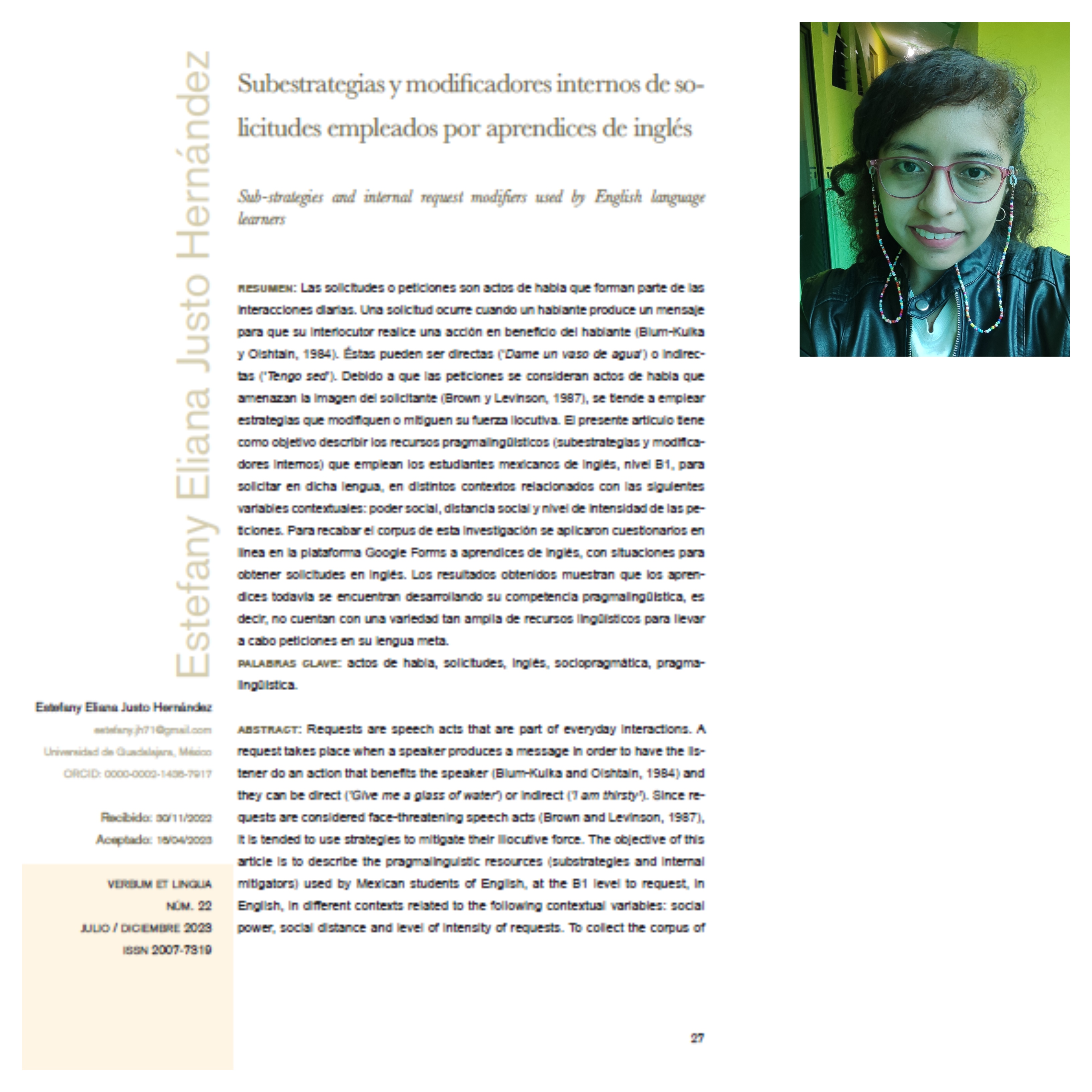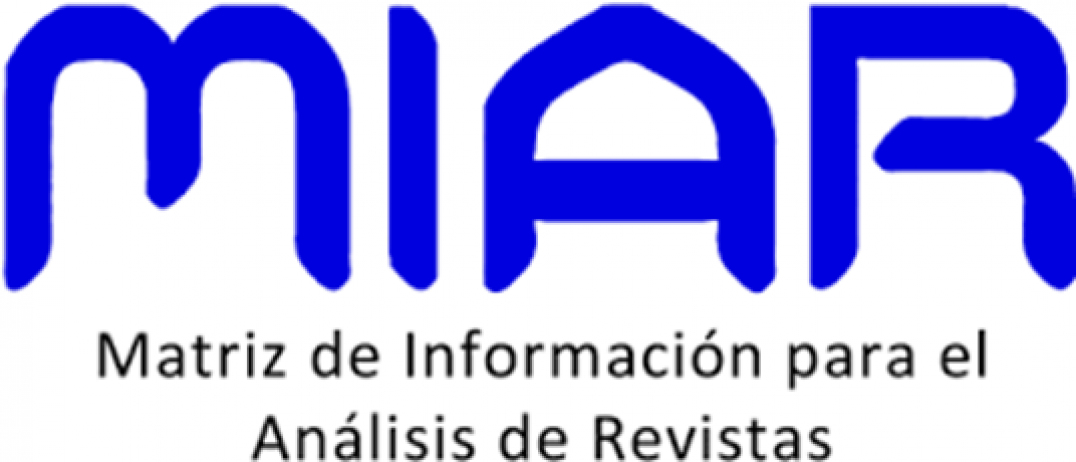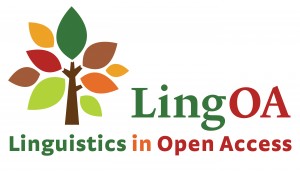Subestrategies and Internal Mitigators in Requests Used by English Learners
DOI:
https://doi.org/10.32870/vel.vi22.208Keywords:
speech acts, requests, English, sociopragmatic, pragmalinguisticAbstract
Requests are speech acts that are part of everyday interactions. A request takes place when a speaker produces a message in order to have the listener do an action that benefits the speaker (Blum-Kulka & Olshtain, 1984) and they can be direct ('Give me a glass of water') or indirect ('I am thirsty’). Since requests are considered face-threatening speech acts (Brown & Levinson, 1987), it is tended to use strategies to mitigate their illocutive force. The objective of this article is to describe the pragmalinguistic resources (substrategies and internal mitigators) used by Mexican students of English, at the B1 level, request, in English, in different contexts related to the following contextual variables: social power, social distance and level of intensity of requests. To collect the corpus of this research, online questionnaires were applied to English learners, on the Google Forms platform, with situations to elicit requests in English. The results show that the learners are still developing their pragmalinguistic competence; that is, they do not have a wide variety of linguistic resources to request in their target language.
Downloads
Metrics
References
Austin, J. (1962). How to do things with words. Oxford University Press.
Bertomeu Pi, P. (2019). Las peticiones en la conversación coloquial española y alemana: un acercamiento a sus tipos y formas. Círculo De Lingüística Aplicada a La Comunicación, 79, 139-160. https://doi.org/10.5209/clac.65653
Blum-Kulka, S., & Olshtain, E. (1984). Requests and apologies: A cross-cultural study of speech act realization patterns (CCSARP). Applied Linguistics, 5(3), 196–213. https://doi.org/10.1093/applin/5.3.196
Brown, P., & Levinson, S. C. (1987). Politeness: Some universals in language usage. Cambridge University Press.
Canale, M. y Swain, M. (1980). Theoretical bases of communicative approaches to second language teaching and testing. Applied Linguistics, 1, 1-47.
Cohen, A. D., & Shively, R. L. (2007). Acquisition of requests and apologies in Spanish and French: Impact of study abroad and strategy-building intervention. The Modern Language Journal, 91(2), 189–212. https://doi.org/10.1111/j.1540-4781.2007.00540.x
Félix-Brasdefer, J. C. (2008). Politeness in Mexico and the United States. John Benjamins.
Flores Salgado, E. (2011). The Pragmatics of Requests and Apologies. John Benjamins Publishing Company.
Gass, S. M., & Selinker, L. (2008). Second language acquisition: An introductory course. Routledge. https://doi.org/10.2307/416225
Habermas, J. (1970). Towards a theory of communicative competence. Inquiry: An Interdisciplinary Journal of Philosophy, 13, 360–375.
Hymes, D. (1972). On communicative competence. En J. B. P., & J. H., (Eds.), Sociolinguistics: Selected readings (pp. 269–293). Penguin.
Infantidou E., & Schneider K. P. (2020). Pragmatic competence: Development and Impairment. En K. P. S. and E. I. (Eds.), Developmental and Clinical Pragmatics (pp. 1–29). De Gruyter Mouton.
Kasper, G. (1997). Can Pragmatic Competence be taught? NetWork, 6, 1–13. http://static.schoolrack.com/files/4890/43904/Can_Pragmatic_Competence_Be_Taught.doc
Kasper, G., & Rose, K. (2001). Pragmatics in language teaching. En G. K. & K. R. (Eds.), Pragmatics in language teaching (pp. 1-10). Cambridge University Press.
Lenchuk I. y Ahmed A. (2019). Are the speech acts of EFL learners really direct? The case of requests in the Omani EFL context. Sage Journals, 9(1), 1-13.
Orozco, L. (2009). El empleo de perífrasis con el verbo poder en la realización de peticiones. En UANL-EDICE (Ed.) La (des)cortesía y la imagen social en México. Estudios semiótico-discursivos desde varios enfoques analíticos. (pp. 109-207). Universidad Autónoma de Nuevo León.
Pan, P. C. (2012). Interlanguage requests in institutional e-mail discourse. A study in Hong Kong. En M. E. & H. W. (Eds.), Interlanguage request modification (pp. 119-162). John Benjamins.
Safont Jordà, M. P. (2007). Pragmatic production of third language learners: A focus on request external modification items. En E. A. S. & M. P. S. J. (Eds.), Intercultural language use and language learning (pp. 167-190). Springer.
Schauer, Gila A. (2019). Teaching and learning English in the primary school interlanguage pragmatics in the EFL context. Springer.
Spencer-Oatey, H. (2008). Culturally speaking culture, communication and politeness theory. Continuum.
Tateyama, Y. (2009). Requesting in Japanese: The effect of instruction on JFL learners’ pragmatic competence. En N. T. (Ed.), Pragmatic competence (pp. 129-166). Mouton de Gruyter.
Toledo Vega, G., & Toledo Azócar, S. (2014). Estrategias de cortesía para la petición en hablantes nativos del español de Chile y en hablantes de español como lengua extranjera. Onomazein, 29(1), 47–63. https://doi.org/10.7764/onomazein.29.2
Trosborg, A. (1995). Interlanguage pragmatics: Requests, complaints, and apologies. Mouton de Gruyter.
Usó-Juan, E., & Martínez-Flor, A. (2008). Teaching learners to appropriately mitigate requests. ELT Journal, 62(4), 349–357.

Downloads
Published
Versions
- 2024-08-30 (3)
- 2024-05-06 (2)
- 2023-10-10 (1)












